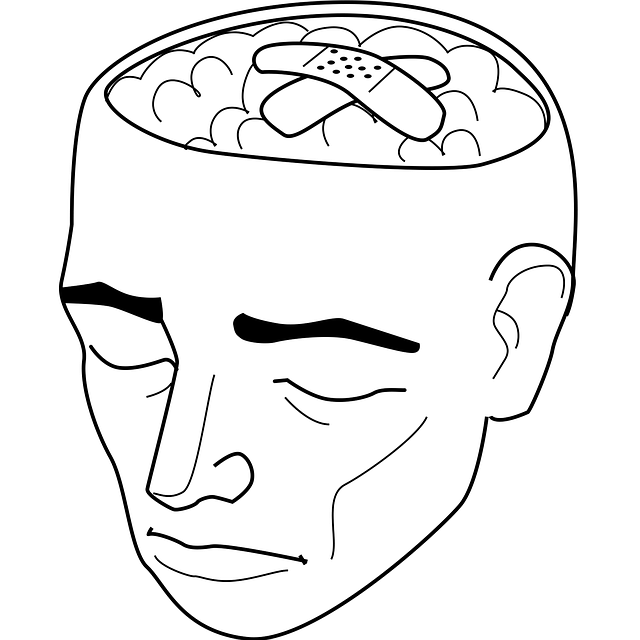Mental illness diagnoses are subjective due to diverse symptoms, personal experiences, and behavioral misinterpretations. Parker Blended Families Therapy offers a holistic approach, considering family dynamics and individual trauma to improve diagnosis accuracy. By focusing on complex relationships in blended families, this therapy enhances communication, resolves conflicts, and strengthens bonds, leading to more precise diagnoses and effective treatment plans. Incorporating compassion cultivation practices, cultural competency training, and advanced risk assessment tools mitigates healthcare provider burnout and ensures inclusive mental health support for diverse family structures and backgrounds, ultimately enhancing overall mental wellness outcomes.
Mental illness diagnoses, though crucial for effective treatment, often face challenges due to complexity and subjectivity. This article explores strategies aimed at enhancing diagnosis accuracy, including an innovative approach—Parker Blended Families Therapy. This therapy model integrates diverse perspectives to offer a holistic understanding of mental health conditions. We delve into the significance of these efforts, focusing on how techniques like Parker Blended Families Therapy can revolutionize mental health care by improving diagnostic precision and ultimately fostering better patient outcomes.
- Understanding Mental Illness Diagnoses and Their Challenges
- Parker Blended Families Therapy: A Novel Approach to Enhancing Diagnosis Accuracy
- Strategies for Improving Diagnostic Accuracy in Mental Health Care
Understanding Mental Illness Diagnoses and Their Challenges

Mental illness diagnoses are complex due to the vast spectrum of symptoms and their interplay with individual experiences. Traditional diagnostic methods often rely on self-reported symptoms and clinical interviews, which can be subjective and inconsistent. This complexity is further exacerbated in diverse populations, like blended families, where multiple individuals with unique histories and challenges share living spaces. At Parker Blended Families Therapy, we recognize that understanding mental health involves a holistic approach, considering the intricate dynamics of family relationships and individual trauma.
Challenges in diagnosis include misinterpreting symptoms as solely behavioral or attitudinal issues rather than potential indicators of underlying mental illness. Self-care routine development for better mental health is crucial alongside trauma support services. Compassion cultivation practices have shown promise in enhancing diagnostic accuracy by fostering empathy, reducing judgment, and promoting a deeper understanding of clients’ experiences, ultimately leading to more precise and compassionate diagnoses.
Parker Blended Families Therapy: A Novel Approach to Enhancing Diagnosis Accuracy

In recent years, efforts to enhance mental illness diagnosis accuracy have led to innovative approaches like Parker Blended Families Therapy. This novel method recognizes that mental health challenges often manifest within complex family dynamics, especially in blended families where stepparents, biological parents, and children from different backgrounds coexist. By addressing these intricate relationships, Parker Blended Families Therapy aims to provide a more nuanced understanding of individual and collective mental wellness needs.
The therapy incorporates tailored interventions aimed at improving communication, resolving conflicts, and fostering healthy bonds among family members. This holistic approach not only enhances diagnosis accuracy but also promotes burnout prevention for healthcare providers by equipping them with the necessary cultural competency training. By recognizing and respecting diverse family structures and cultural backgrounds, this method ensures that mental health support is inclusive and effective, ultimately contributing to improved mental wellness outcomes for all involved.
Strategies for Improving Diagnostic Accuracy in Mental Health Care

Improving diagnostic accuracy in mental health care is a multifaceted endeavor, particularly as conditions often overlap and present complex symptoms. One effective strategy, backed by the Mind Over Matter Principles, involves integrating diverse therapeutic approaches like Parker Blended Families Therapy. This approach considers the individual within their social context, recognizing that family dynamics can significantly influence mental well-being. By addressing these broader factors, professionals can gain a deeper understanding of a patient’s emotional regulation and potential triggers, enhancing diagnostic precision.
Additionally, enhancing risk assessment is paramount. Mental health professionals should be equipped with tools to identify red flags and predict potential crises. This involves ongoing training in emotional regulation techniques, recognizing subtle cues, and utilizing evidence-based risk assessment models. By fostering a culture of continuous learning and adopting innovative practices, the mental health care system can strive for greater diagnostic accuracy, ultimately leading to more effective treatment plans tailored to each patient’s unique needs.
Mental illness diagnosis accuracy is a multifaceted challenge that requires innovative approaches like Parker Blended Families Therapy. By integrating different therapeutic methods, this novel strategy promises enhanced precision and improved patient outcomes. Additionally, adopting strategies such as continuous training for healthcare professionals, utilizing evidence-based practices, and promoting open communication can significantly advance diagnostic accuracy in mental health care. These efforts collectively contribute to better understanding and addressing the complex nature of mental illnesses.














